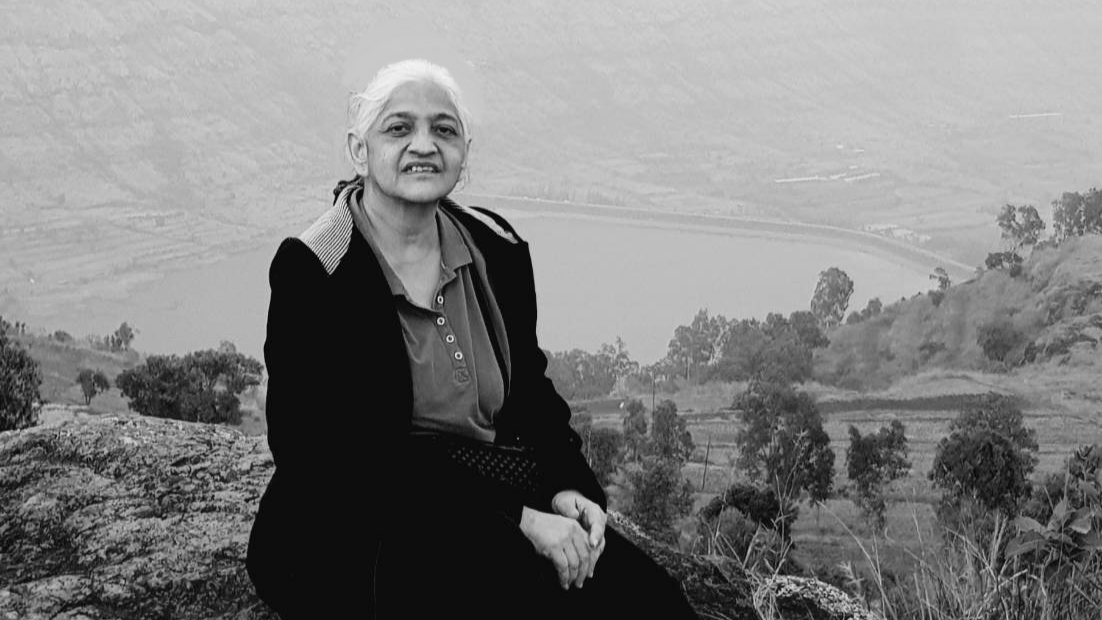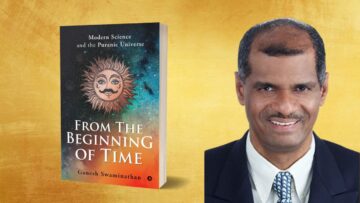“She chose the life of a warrior, leading from the front, protecting her ancestral kingdom.”
Rohini Gupta is a Mumbai–based writer and the author of Chitrangada, one of the stories in the Aryaa anthology. With a Masters in literature, Rohini forayed into writing through poetry and later went on to write freelance articles for newspapers, magazines and websites as well as conducting writing workshops. An avid writer and publisher of over twenty books, Rohini writes poetry anthologies, short stories and non-fiction. Her non-fiction books such as Mantramala and Lost Cities of India as well as works on poetry including Where Rivers Meet are available on Amazon.
Her love for writing, her introduction to Mahabharata at an early age, and her fascination with the lesser-known stories in the epic set the grounds for Rohini to write about Chitrangada. But there was also a personal connection Rohini found with the character. In this conversation, Rohini talks about writing about Chitrangada and her life as a writer.
Growing up with Mahabharata
When I was a kid, my mother gave me the Kamala Subramanium Mahabharata. I read it so much that the pages came apart. I wanted to write about the characters and stories especially since there is so much misinformation around. For example, a strange superstition says it is unlucky to keep a Mahabharata in the house. This doesn’t make any sense because the last verse very clearly says that reading it will bring Sri – prosperity, Kirti – fame, Vidhya and Mudita – learning and happiness. What more can you want?
Developing her reading of the epic into her writing, Rohini has recently finished her first novel based on the Mahabharata and is looking for a publisher.
Giving Voice to the Women in Mahabharata
I enjoy writing stories about strong women so I had a lot of notes and story ideas about women like Savitri and Chitrangada. When I heard about the anthology I had several choices but the Chitrangada story had a first draft already written so I could finish it in time.
Since I follow the original Sanskrit epic of Maharshi Vyas and not other versions, I realised that this episode is not a very popular one and there is very little about Chitrangada in the Mahabharata. She was the princess of the kingdom of Manipur, which seems likely to be the same place as today’s Manipur, the direction in which Arjuna was heading and Chitrangada resided. However, the actual text says very little about Chitrangada. This includes a few verses during Arjuna’s wanderings and a few more later when he takes the Ashwamedha horse back to Manipur after the war. It was during his second visit that Chitrangada’s son Babruvahana comes into the story but he is hardly mentioned in the original. The commonly known information about Chitrangada and her son comes from folklore and legend.
Understanding Chitrangada, the Warrior Princess
I prefer to write about strong women or different women who have minds of their own. Chitrangada was raised as a warrior, a putrika. A warrior needs to wield a sword in battle or pull the string of a powerful bow. Warriors have muscles and she would look strong and tough instead of a flowerlike heroine from romance. She is also a Princess so she would have confidence and be able to command. Although the Mahabharat does not mention her appearance, Tagore in his story saw her as a warrior and I could relate to that.
I have a background in martial arts, was doing one art or the other for a couple of decades and have met some really tough real-life warrior women whom you would not want to upset. The warrior mindset is very different. Martial artists, sports people and others endure impossibly tough and often painful training and are fiercely determined.
I can relate to the rigorous years both Chitrangada and Arjuna must have gone through to reach mastery. I feel that most of the books and stories about warriors don’t really understand the physicality that goes into the character of such a person. I feel it is lacking without that since it’s such a crucial part of their character. I wanted the reader to experience and feel Chitrangada as a strong warrior as well as a woman.
Ruling Manipura – a Matrilineal Legacy?
The original text doesn’t mention Chitrangada coming from a matrilineal family. Most of that is legend or folklore which must have come later. India did have matrilineal societies and even matriarchal. I do not think this was either. In many matrilineal societies women own the land but executive control still goes to a male relative. In matriarchal societies, women are in charge and a queen would pass the throne to her daughter.
In this case, Chitragada’s father is the ruler and there is no mention of her mother. Because she is a girl and an only child, her father makes her a ‘putrika’ and so she becomes the heir. That does not suggest matrilineal to me but it just shows that even in Mahabharata times women could rule. Women could also be rishis or warriors and the fascinating stories of many of them have come down to us.
Telling Stories About Love, Valour and Womanhood – Chitrangada & Ulupi
Chitrangada and Ulupi (whose story appears later in the Aarya Anthology) were Arjuna’s wives and I think the two would have had a bond. When Arjuna died in Manipur, it was Ulupi who arrived to help Chitrangada and save him. Ulupi also chooses to stay with her Naga race rather than follow Arjuna. Ulupi is the only woman from the epic, as far as I know, who sees a man she likes, a warrior at that, and simply kidnaps him – she just dragged Arjuna underwater to her palace. Yes, women could kidnap men in epic times! Both are strong women. Ulupi is beautiful and more aggressive but I think they would have got on together. About women in the Mahabharata and other texts – this needs to be said. Too many retellings have made the women out to be helpless victims.
I wrote this story about Chitrangada out of irritation actually. I was annoyed by another story in which she gives up her warrior ways to moon over Arjuna. I doubt you would do that if you had spent your whole life training. And the epic says she remained in her kingdom rather than return with Arjuna to Indraprastha so she did take warrior training and her royal duties seriously.
It was not until I read the actual unabridged text and the original Sanskrit verses, that I realised how strong-minded women have been shown as weak and weepy. In all the epics women speak their minds, are very influential, fight battles, engage in debates and go to war too. Both the epics, Puranas and Indian history are full of strong women and those are some of the stories I would like to write. And my readers would also be those who want to read about epic women and those who want to know the real stories of the epics.







